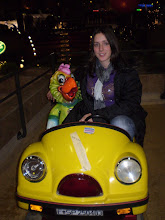
Angel heirarchy: Classes of angels as traditionally taught.
Angel heirarchy, the order of the classes of angels by rank, has been debated clear back to the beginnings of christianity. However, the Hebrew heirarchy of angels has been established for millennia. It seems that the angel choirs will vary depending upon what religious view one subscribes to, as there are discrepancies between which classes of angels belong to which choirs, as well as different names for what are most likely the same types of angels. The following angel heirarchies will help in sorting out the traditional view of angel class and rank.
Hebrew Angel Heirarchy
First let us mention that traditional Hebrew beliefs teach the existence of seven heavens, each guarded by various angels. The seven heavens are:
Shamayim
Raqua
Shehaqim
Machonon
Mathey
Zubul
Araboth
The Hebrew ranking of angels from highest to lowest are:
Hayyoth
Ophanim
Erelim
Hasmalim
Elohim
Bene Elohim
Cherubim
Issim
Christian Angel Heirarchy
As previously mentioned, the arguments within the christian church by theologians regarding angel heirarchy began with the earliest theologians of the then newly formed religion. The bible gives angel types, but no mention of angel heirarchies or rank. The following are the various classes of angels mentioned without classification: angels, archangels , principalities, powers, dominions, virtues, thrones, cherubim and seraphim. However, over a period of time, many church leaders such as St. Thomas Aquinas, began eventually subscribing to the pseudodionysian scheme of angel heirarchy. This ranking of angels called choirs, breaks them into three hierarchies with three orders under each heirachy:
First Heirarchy (Highest)
Seraphim - first order (those who see most clearly)
Cherubim - second order (fullness of knowledge)
Thrones - third order (contemplate divine justice)
Second Heirarchy (Middle)
Dominations - fourth order (providence is enacted through them)
Virtues - fifth order (movement of the heavenly bodies)
Powers - sixth order (precise and preserved enactment)
Third Heirarchy (Lowest)
Principalities - seventh order (welfare of human affairs as a whole)
Archangels - eighth order (sharing of higher things to all of mankind)
Angels - ninth order (individual affairs of mankind)
Islam Angel Heirarchy
The highest ranking angel mentioned in the Koran is identified with the Spirit, who is made from God's light, and is the Divine Command and chief of the Kerubim (cherubim). He has eight forms who bear the throne of God, while Cherubim are the axis of creation. All angels are created from him, thus archangels and angels preside over the Universe for him. There are four archangels (another name used for Kerubim) named: Israfil, Jibril (Gabriel), Azrael (Izrail) and Michael. Two other angels are mentioned by name: Munkar and Nakir, who visit graves of those who recently departed. Ridwan, are angels in charge of heaven, while kiramu'l katiban are angels who accompany every person and record their lives (each person has two of them; one on each side of the person).
Final Thoughts on Angel Heirarchy
There are truly so many more ideas concernings angels and their ranking, that it is virtually impossible to make much sense of it all. These ideas of heirarchy have been researched over and over, and one thing is clear: rank and class of angels have been evolving through religion and mythology for thousands of years. It is best to know this, and not put much stock into any of the schemes of angel heirarchy, for there has to be error with so many conflicting arrangements of celestial beings. It makes one wonder if attempts were made to make more out of of ancient writings than what was intended by the authors, when theologians attempted to discern and assign rank. An example of the mixed ideas can be understood by visiting our Types of Angels page. You will see that so many orders of angels are equated with other angels of different names (but similar); yet there does not seem to be one heirarchy that fits all of the beliefs regarding these angelic beings. In other words, attempts at trying to resolve the heirarchy confusion is futile.

Δεν υπάρχουν σχόλια:
Δημοσίευση σχολίου